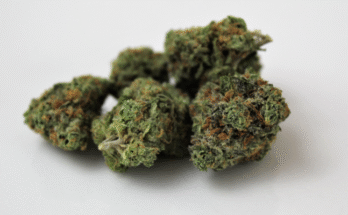In recent years, there has been a resurgence of interest in the therapeutic benefits of psychedelics.
This renewed curiosity is particularly significant in the context of obsessive-compulsive disorder (OCD), a condition that still lacks comprehensive treatment options.
In a study published in Scientific Reports, researchers at the Paris Brain Institute offer compelling insights into how LSD and psilocybin might hold the key to providing long-lasting relief for individuals battling OCD.
OCD: A relentless struggle
OCD is a condition characterised by intrusive thoughts, the involuntary repetition of undesirable behaviours, and overwhelming anxiety.
This debilitating disorder affects approximately 2% of the population and can become a catalyst for isolation as individuals fixate excessively on various obsessions, often at the cost of their relationships, careers, and hobbies.
The primary treatments for OCD typically involve cognitive-behavioral therapy (CBT) to reconfigure thought patterns, coupled with the use of antidepressants.
However, these approaches can be slow to yield results, with up to 40% of patients experiencing no relief at all.
Against this backdrop, a therapeutic avenue explored in clinical research during the 1970s is resurfacing – psychedelics.

Psychedelics offer hope
The study involved 174 individuals with OCD symptoms who had used psychedelics occasionally or regularly.
They completed an online questionnaire regarding their mental health, treatment history, and socio-demographic characteristics.
Additionally, participants were asked to provide details about the context of their psychedelic experiences, the dosage, the nature of their experience, and the perceived effects on their symptoms.
The responses were promising, with participants reporting the dissipation of obsessive thoughts, reduced need for rituals, lower anxiety, and greater acceptance of their OCD.
Notably, 30% of participants reported that these positive effects lasted for more than three months, an encouraging finding. The researchers also observed a positive correlation between the dosage of LSD or psilocybin and the intensity of the psychedelic experience’s pleasantness.

However, the results must be interpreted with caution. The subjective nature of questionnaires make them unreliable.
Problems facing researchers
Anne Buot, lead author of the recent study, explains, “since these substances are banned in many countries, clinical studies are difficult to set up, and we don’t have robust data on their effectiveness yet.”
The challenge in conduct randomised, double-blind studies, the gold standard in clinical research, is that researchers require promising preliminary data to initiate these trials swiftly.
While psychedelics remain tightly controlled in most countries, gather that preliminary data is difficult.
To harness the full potential of these potential treatments and establish best practices for their use, rigorous clinical studies are essential.
Researchers are also trying to uncover the mechanisms underlying the long-term effects of psychedelics, which look to be associated with increased neuroplasticity through the remodelling and growth of synaptic connections in the brain.
🌿 Sign up below for UK Cannabis Weekly – where over 16K canna-curious readers enjoy a 5-minute weekly dose of the latest UK weed news, reviews and insider tips!




